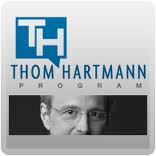 Way back in 1985, President Ronald Reagan outlined a very simple principle of tax fairness during a speech at Northside High School in Atlanta, Georgia.
Way back in 1985, President Ronald Reagan outlined a very simple principle of tax fairness during a speech at Northside High School in Atlanta, Georgia.
Loopholes that allowed millionaires to pay less in taxes in bus drivers, he said, were crazy
That was one of the few times Ronald Reagan was right about something, which makes it all the more amazing that 31 years later, one of the crazy loopholes he was talking about is still one the books.
I’m talking, of course, about the carried interest loophole.
Although it has its origins in the 20 percent profit on goods that ship captains demanded in the medieval glory days of sea trade, the carried interest loophole is today just another carve-out for banksters.
Here’s how it works: Let’s say you’re a hedge fund manager and you’re in charge of a massive hedge fund worth billions, of dollars. You, as the hedge fund manager, have a choice of the way you make your money. You can either take it home in the form of a fee or you can take it in the form of a percentage of the profits accrued from the investments your fund makes.
If you choose to take home your money in the form of a fee, it’s taxed at the top income tax rate of 39.6 percent.
But if, on the other hand, you decide to take your money home in the form of profits -- carried interest -- it’s taxed as capital gains, at around 23.8 percent, a huge tax saving for the billionaire hedge fund managers.
In other words, even though the money you’re taking home is for all intents and purposes your income, a glorified accounting trick turns it into something else, and your tax bill is a lot smaller as a result.
Now, this isn’t totally crazy.
The original idea here was to protect people who invested their own money in risky ventures.
But that’s not how things work these days.
There are now so many protections in place for hedge fund managers and general partners that the risk they face is very, very minimal.
Giving them a tax break to protect against “risk” is redundant, not to mention costly for the rest of us.
Even though it only benefits about 2,000 people every year, the carried interest loophole costs taxpayers – you and me – about $2 billion in lost revenue every single year. Closing it, some studies have found, could bring in as much $18 billion over 10 years.
This just common sense, even some banksters themselves know that.
Writing in the New York Times this weekend, Alan J. Patricof, the co-founder and managing director of venture capital firm Greycroft, called on Congress to close the carried interest loophole once and for all.
He called it an issue of fairness, which it obviously is.
But there’s another aspect to the carried interest loophole that’s rarely discussed: that hedge funds themselves are often dangerous.
They destabilize the economy, and feed off the rest us, often ripping off working people to make money.
The don’t build anything; they’re essentially parasites, and the carried interest loophole often encourages people to join a profession that can pose a big risk to the rest of the economy.
It’s time to repeal the carried interest loophole for both these reasons. And then let’s begin a discussion about regulating or redefining hedge funds to limit the damage they can do to our economy.
Bus Drivers Shouldn't Pay More Taxes Than Millionaires
By Thom Hartmann A...



